ESS Podcast
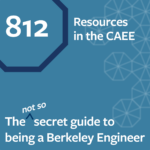
In our final podcast of the summer, we speak with Luis Castillo, associate director of student development in ESS, and returning engineering students Andrea Limon, Gabriel Sianez and Rosalind Martinez. They will introduce us to the Center for Access to Engineering Excellence (CAEE), a program in ESS that includes academic support, a computer loan program, professional and leadership workshops and more.
Important links from this week’s episode:
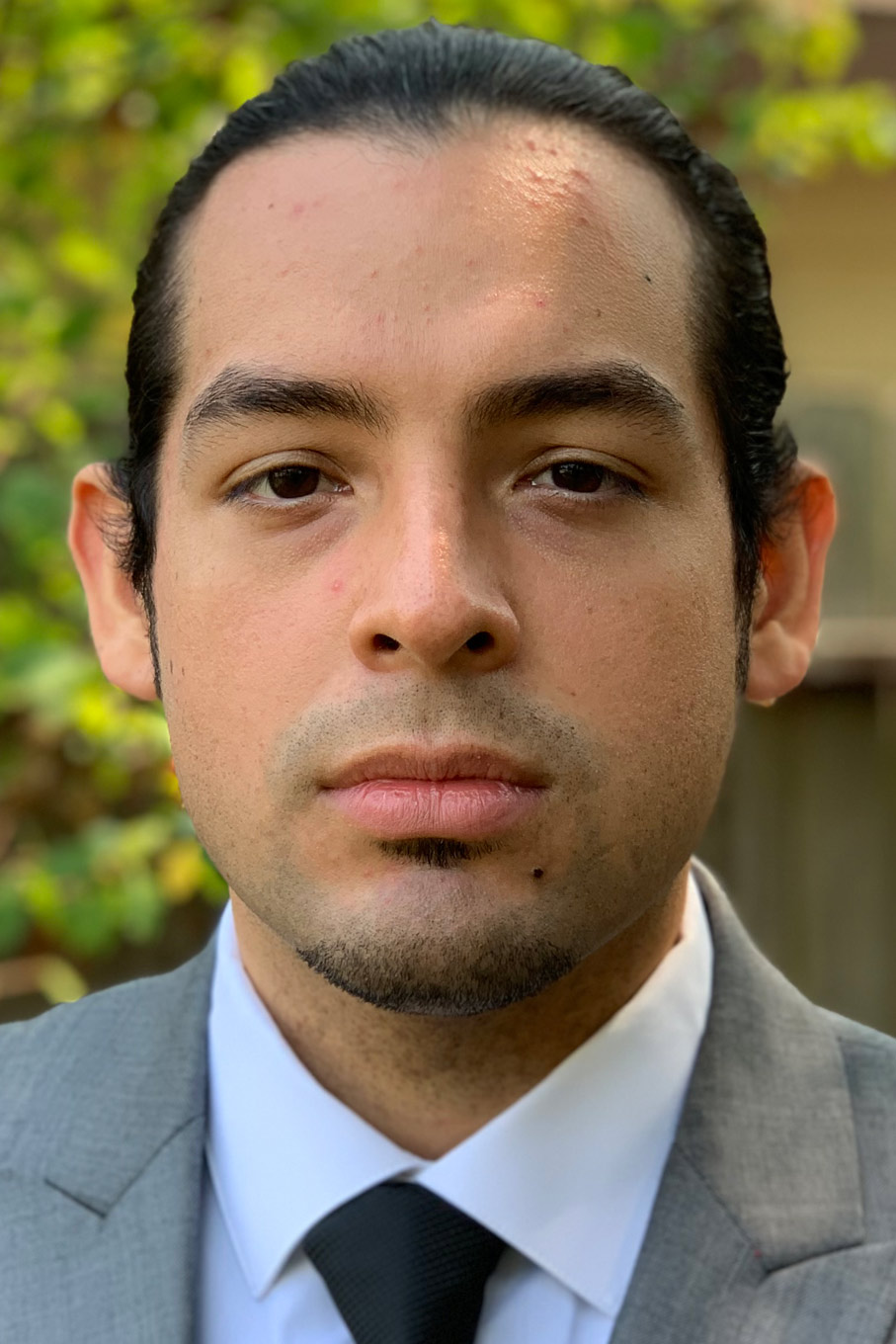
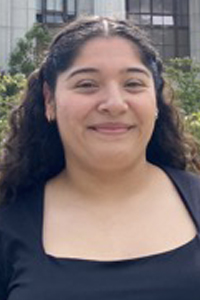
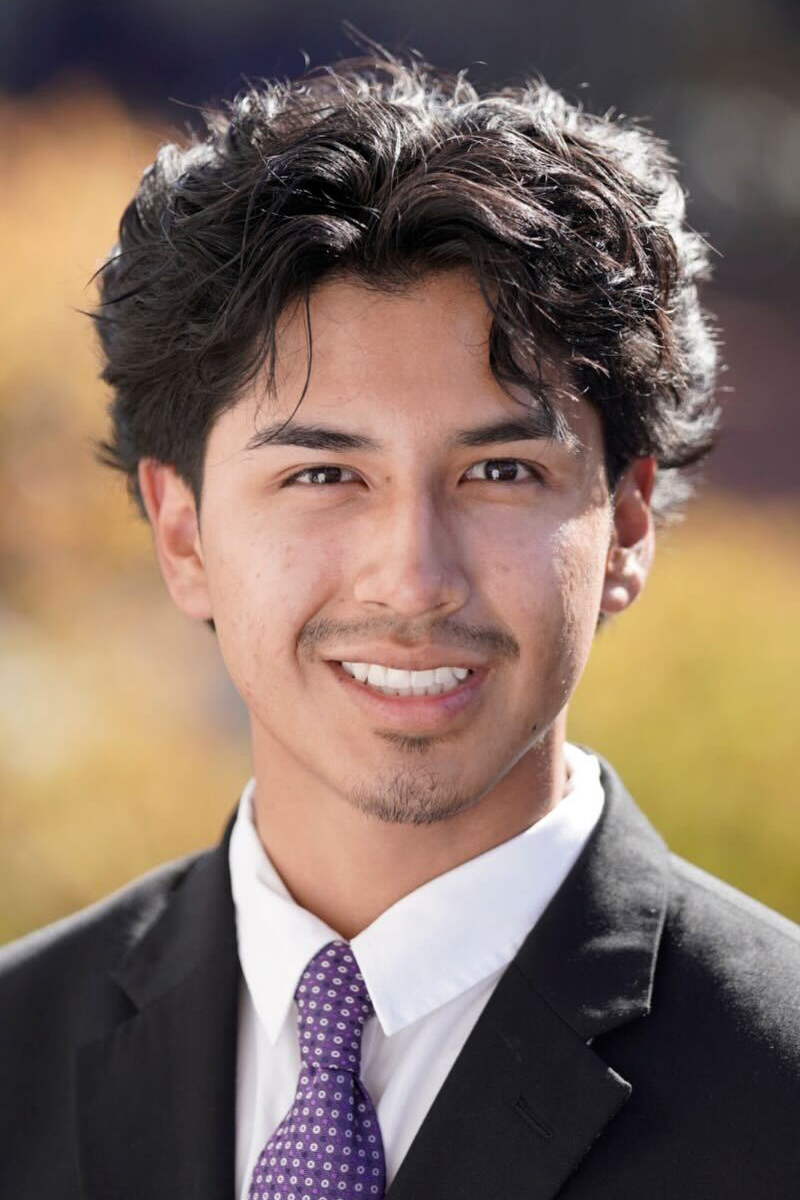
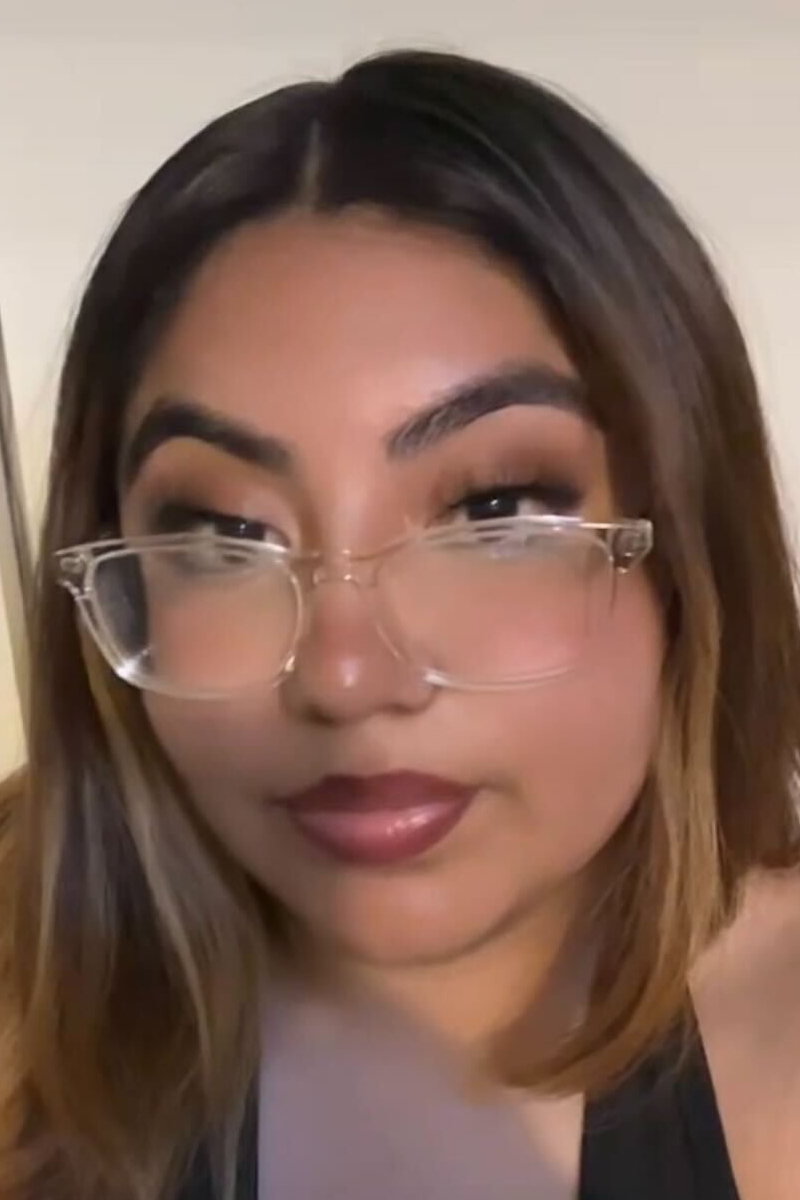
Laura Vogt:
Hello and welcome to The (Not So) Secret Guide to Being a Berkeley Engineer. I’m your host, Laura Vogt. I’m the Associate Director for Marketing and Communications for the College of Engineering. For our last podcast of the summer, I’m excited to have the folks from the Center for Access to Engineering Excellence, or the CAEE as we’ll be referring to it, talk about the resources and support you have at your fingertips. Here to tell us more about the CAEE are Luis Castillo, the Associate Director of Student Development in Engineering Student Services, and students, Andrea Limon, Gabriel Sianez and Rosalind Martinez. Thank you so much for being here today. Let’s start off getting to know each of you. So Luis, can you start with telling us more about yourself and your role in ESS?
Luis Castillo:
Of course, thank you for having me. So to tell you a little bit about myself and what my role entails, is that my role entails three major components, the first one being the Center for Access to Engineering Excellence, and that’s supervising all of the services that we provide from tutoring, the snacks, the workshops and events, to all of the resources we provide from the textbook lending library, to the laptop lending program, the Success Closet and many other things that we do.
Outside of that, I also manage Leadershape, which is a program that we invite students to attend and for you to have the opportunity to build leadership skills. And that happens in between fall and spring. So during that small winter break we go for a whole week to Sonoma County and do a whole training session in which you have an opportunity to connect with students in an off-campus basis and off the classroom basis and talk more about how do you want to impact the world as an engineer.
And then finally, the last component of my work is being the main liaison between the College of Engineering and the engineering student organizations. In that role, I oversee the funding that the College of Engineering provides to student organizations. Just as well, I work closely with the engineering student council. And finally, is just providing support and being the main person to outreach to student organizations about how more we can collaborate between the College of Engineering and the efforts that engineering student orgs are trying to put on. So that’s in brief a little bit of what I do in ESS.
Laura Vogt:
It’s like you’re going to do a little bit plus throw in the kitchen sink, right?
Luis Castillo:
Yes. And I’m not adding the little extra components too, as well.
Laura Vogt:
Thank you so much for being here today. So let’s have each of our students tell us about yourselves, maybe your major, your year of study, organizations you’ve been part of, or things you think would be fun or useful to share. So we’ll go in order of Andrea, Gabriel and Rosalind. Go ahead.
Andrea Limon:
Hello, my name is Andrea Limon. I am an incoming fourth year studying Mechanical Engineering. While in my time at Berkeley, I’ve been a part of Globe Ambassadors. I’ve also been a part of HESS and SWE, which I really love. And yeah, something really useful to know about me is the CAEE has kind of been my second home, so I’m really excited to be sharing and talking more about it today.
Gabriel Sianez:
Hello, my name is Gabriel Sianez and I’m excited to be here. I’m a current Mechanical Engineering major. I’m a rising junior and a student organization that I have been a part of include Hispanic Engineers and Scientists, Based Technologies at Cal, and Combat Robotics at Berkeley. I think something that would be fun to share is that the biggest robot in the student organization in Combat Robotics at Berkeley weighs approximately 250 pounds and his name is Glitch. You may have seen this robot compete in past competitions in the TV show Battle Box. Thank you.
Laura Vogt:
Thank you. Rosalind?
Rosalind Martinez:
Hello everyone. My name is Rosalyn Martinez. I am a co-lead here at the CAEE and I’m also an incoming fourth year majoring in Mechanical Engineering. And my time here I’ve been part of Robo Bears and HES, and I’m a first generation Mexican from LA.
Laura Vogt:
Well, thank you all for being here today, I really appreciate it. And so like I said, we’re talking about the Center for Access to Engineering Excellence, which is a mouthful of a name so we often call it CAAE or the Center, and I think it’s one of the best resources that we have for engineering students here on campus. So let’s start with some of the nuts and bolts of it. What is the center?
Andrea Limon:
So the center is basically an area that we like to provide where students have free-range to come in, study, grab snacks, and it’s just also a very inclusive environment, inclusive and safe environment in which we provide and we foster not only creativity but also collaboration within students. We find that it’s often in these groups that students thrive when they have a supportive community that’s helping them along the way.
And so we kind of just like to provide that space where kids can come in, grab a snack, get some tutoring for classes they might need, and just always have a place to rely on while here in Berkeley just because we know it can be a little difficult to find your place, especially in a university as big as ours. And even in a college as big as ours, it can feel a little overwhelming. And so we like to provide a little safe space for students to come in and meet new people and just get to explore what College of Engineering really is.
And we also like to help students who are underrepresented and marginalized with programs that we provide, like how I mentioned before, our snack closet in which students can come in and grab snacks or even our Success Closet in which students who are attending conferences can come in and borrow professional clothes, and even our laptop lending programs where students can borrow computers for semesters, which I think is really nice.
Laura Vogt:
And what other programs does the Center offer?
Gabriel Sianez:
Yeah, of course we also offer tutoring for students. So we do tailor our tutoring services more towards engineering-based classes, but that is not limited to only engineering classes. For example, we have Math 1A, which is very heavy, a lot of students come in for Math 1A or Chem 1A, which is just intro to three levels of these courses so calculus and chemistry. Aside from that, we also offer tangible resources, like Andrea has mentioned, we offer our Success Closet and lending library, which will be laptops and professional attire. But in terms of smaller resources, we have rulers and then we also offer Blue Book, so if the student needs to pick up a Blue Book before a final, they can pick that up. And all of this is to no cost to the students.
Laura Vogt:
That’s awesome. I really appreciate the fact that it doesn’t cost anything, that you can go in and get something if you need it. Where is the CAEE located and what are the hours?
Rosalind Martinez:
Yeah, as you may know that we actually moved due to the construction, but we are not located in Bays three to five, which you could either go up the stairs that’s in front of the Breezer McLaughlin or walk down from Hear Avenue, but we do have sounds outside that point to the CAEE, so if you spot one then you’ll be close by. And we also have a video on how to get to the CAEE on our website, so you could find that. And you could also search us up on Google Maps. But our hours are from 9:00 AM to 9:00 PM Monday to Thursdays and 9:00 AM to 5:00 PM on Fridays.
Laura Vogt:
And is there also a way that if somebody just has a question and wants to contact one of the student workers, is there an email that they could send to or a form or anything like that?
Rosalind Martinez:
Yeah, they could send us an email and the email is thecaee@berkeley.edu. But we also have an Instagram, so they good contact through there. Our Instagram page is @CAEE_Berkeley. And you could also learn more about us on the Berkeley engineering website, which is under students, or if you search up the CAE Berkeley, it’ll be like the first link. And then on our website, you could just find details on what we offer, all our courses, if you want to meet the CAEE team, any upcoming events and our services.
Laura Vogt:
And you have a really robust tutoring schedule on there too as well?
Rosalind Martinez:
Yeah, we do.
Laura Vogt:
And the tutoring, it’s offered in the fall, spring, and summer semesters?
Andrea Limon:
Yes. So as of now, we are only offering tutoring in the fall and the spring. And yeah, if you have any questions about it, you can always call us or contact us through our email. And then we always have our calendar on the website up to date with whether students call off or if there’s a change in schedule, you can always find that updated on our website.
Laura Vogt:
And so I know a lot of the classes are for engineering classes, but who is the tutoring for and you talked a little bit about courses are covered, is it lower level and upper division or upper level?
Andrea Limon:
Yes. So being an engineering facility, we do cater more of our courses towards engineering students and you see that more with our upper div and course specific classes. But we do find that a lot of other students from other majors come into the CAEE for tutoring. And that’s just because we offer a very broad range of classes. We have a lot of lower div classes that are requirements for all different majors, not just engineering like Math 1A, Math 1B, Math 54 and 53, and a lot of physics and other courses like that.
And so we do find that in terms of those lower division classes, we do see a lot of students coming from different majors, which we absolutely love. I mean, at the end of the day, we’re here to serve students and whether you’re engineering or not, we love people coming in and using our resources.
And then how you mentioned before, we do also offer upper division courses. Because we know that as classes progress, they don’t get any easier and we know that even though you might start having a better hold on your schedules and your classes, even though you’re in upper division classes, those classes themselves can still be very difficult. And so we like to provide almost a sense of comfort and a place where you can almost rely on someone else for help. And so we like to offer also those upper division classes when we can to help students continue on their journey and make sure that they’re going along steadily in their paths.
Laura Vogt:
And how does the student sign up to get tutoring?
Andrea Limon:
So we don’t really have a signup. We come on a first come first serve basis. So whenever our tutors come on shift, which you can either see in our website or email us or call us to find out that information, you just sign in at the front desk how you would normally do with your Berkeley student ID and put in the reason you’re here, which if you’re here for tutoring, you would put tutoring in the course and we will direct you to the tutor that you’re looking for and you just sit down and ask questions.
And another cool thing that we provide is besides tutoring, we also have something which we call deep dives, which are a little mini, I would say, sometimes discussion section. So if you feel like you don’t have specific homework questions, that’s what we use tutoring for, you could go into our deep dives, which we have scheduled also, should be on our calendar. So yeah, you go into our scheduled deep dives and it’s just mainly another mini lecture where if you don’t really understand the concept but you don’t have any homework questions and you want to further expand your knowledge on that subject, you can go in and just ask questions about the subject itself instead of coming in with homework questions.
Laura Vogt:
And one of the things I was thinking about yesterday for some reason, I don’t know why it came up, but a lot of the students that are coming from high school might’ve been the tutors and not ever thought that they needed tutoring. When do you think that you should start tutoring or look into it or not necessarily feel bad that you’re trying to get extra help?
Andrea Limon:
Yeah, well, I think there isn’t anything wrong with looking for help, especially because we know that these Berkeley courses can be very rigorous and they move at a very fast pace. And so I always think it’s best to come in the first weeks of your class, if I’m being honest, so you can get to know the tutors and they can start to get to know you and find the best ways that work for you because something that people don’t often realize about tutoring is our tutors do have a lot of people that come in and they have to find the ways that work best for each and every individual student.
So if you come in at the beginning where you’re still maybe a little confused, not as confused, but these tutors can start working with you and getting to know you and start understanding which ways you learn best. And so when it comes to those times where you’re struggling a little bit more, they’ll have a better reach and a better grasp of how to help you personally, and I think that’ll really help you in your path of being a Berkeley engineer.
Laura Vogt:
Thank you, I appreciate that. What kind of events can students look forward to or workshops this semester?
Gabriel Sianez:
Our events do vary every year and I would recommend students look forward to our holiday themed events and recurring events. I cannot say exactly what events that we’re going to be hosting, but these events almost always include activities such as arts and crafts, movie watching and board games.
Our most popular events involve food such as our monthly breakfast events and our live week events that take place during RRR week. We always finish every semester strong with our Boba Dance Party event, and that has a pun intended where students can pick up boba or fruit tea just after participating in a round of Just Dance. And of course, all our events are no cot to students as well.
Luis Castillo:
Outside of the community building events that Gabriel mentioned, we will also be having a professional and wellness series this upcoming fall. And the professional series you can find things like having an elevator pitch, a resume clinic, completing your LinkedIn, how to go about interviewing. We also have the deal or no deal workshop. And then in the wellness session you’ll find things like presentations from DSP and caps, both the social events that Gabriel mentioned.
We’ll also be having a basic needs presentation in which you can find more information to us to how to go about doing your CalFresh. We’ll also be putting on a CalFresh clinic in which people will be able to help you out either applying for CalFresh or how to go about setting that up. And then finally we’ll have all of the events that Gabriel mentioned and things like yoga day.
So just be on the lookout, all of those things will come to you via the newsletter. So please, please, please check out the newsletter and see all of the events that come up and just as well follow that Instagram link that Rosalind shared
Laura Vogt:
For the career events that you’re doing, it’s one of those things where you’re really trying to help a student be career ready from the resume writing all the way through the interview process. And I like that the deal or no deal is actually there to help you if you’ve been offered a position, how to make sure you’re getting the most out of it. I imagine that you have to have a lot of student workers there to help keep everything moving smoothly. So do you have any open student positions? And if so, where could they apply?
Rosalind Martinez:
Yeah, we open positions at the beginning of every semester, but right now we closed the student assistant position, we are already found more. But we are recruiting for tutors, so if you have any experience with that or want to help students, you could go on our website and scroll down and you’ll be able to apply there and we’ll be able to get back to you.
Laura Vogt:
And with someone’s applying to be a tutor, what are you looking for for folks that want to do that?
Rosalind Martinez:
We’re looking for students who are ready for the classes and if they had some experience in tutoring in high school or during college, that’s very helpful for us. But someone who’s actually willing to help the students and who has a drive on helping students, especially because they know they’ve already took the classes so they know how hard it could be just so they could give them tips and find a way to pass the class.
Laura Vogt:
Is there a minimum number of hours that you need someone to tutor a week?
Rosalind Martinez:
No, it depends on the amount of courses you have. So if you have a lot more courses, then you do have a lot more hours where if you have less courses, then you don’t have as much hours during the week.
Laura Vogt:
So they could tutor more than one course, you’re not just coming in just to tutor Math 53?
Rosalind Martinez:
Yeah, they could tutor more than one.
Laura Vogt:
And so I want to know a little bit more about the CAEE from your perspectives, because I know all of you have been really involved with it. Can you tell us one story that has meant the most to you of your time there?
Andrea Limon:
Yeah, I can get us started with that. In a really weird way I would say the story that kind of meant the most to me was kind of my story, just because I came in my freshman year and I didn’t have any experience with any engineering and I was actually really scared. And my whole freshman year, all the friends that I made in my lower division classes were all MCB or data science, I didn’t really have a lot of engineering friends.
And it wasn’t until my sophomore year where a friend introduced me to the CAEE, which is when I really started to kind of feel more included into this engineering community. And I got to see what everyone was talking about with the community that has built around the College of Engineering. And I really think the CAEE is really a hub where we see that beautiful community because we see people of all different engineering majors just come together and if you need help, you’re always going to find someone willing to help you here, which I think is always really nice. And I just think the CAEE is a beautiful manifestation of this community that we’re always talking about. And I think for me, it really did help me.
And I think it’s also really nice because I applied to work here the beginning of my junior year, and little did I know that I would find my most bestest friends here. Everyone that I work with is my best friends and I really wouldn’t be able to think about my Berkeley experience without thinking about those people and thanking them for what they did for me in this journey. And yeah, I really don’t think that I would’ve been able to get through college if it wasn’t for the CAEE and the people that I met through here. So yeah.
Laura Vogt:
And that’s awesome. I’m so glad that you found that place for yourself.
Gabriel Sianez:
I too agree with Andrea. I definitely found a community here at the CAEE who also has helped me as talking to upperclassmen, I did not have much upperclassmen exposure, but talking to upperclassmen definitely helped you shape your academic journey.
But personally, my most meaningful story would have to be at an event that Luis mentioned earlier, which is called LeaderShape. And the LeaderShape, it was very tailored to building skills in terms of leadership, and it was a very heavy program in terms of hours and participation, but every day you could sneak in maybe a few hours where you could have some fun. I’m not saying that the program wasn’t fun, but it was outside of the program because we were in the Redwood Forest and then obviously if you’re in the Redwood Forest, you definitely want to take an experience from that.
And then I remember the last night, everyone participated in a night hike. It was the darkest hike I’ve ever been on, you could not see anything. And I remember it was everyone from the program, maybe a few people I remember some people had tummy ache, so they cannot participate. But I remember seeing Luis on the hike and that’s when I found out Luis had a light sensitivity when I would take a picture of him. And on the way down, we did bond through talking about Batman, which is something I did not expect to do with my boss, but it was a very meaningful experience. I remember playing basketball with Andrea and Rosie as well. And the whole experience was just a very meaningful thing to me as I learned about community building and how fast you can bond with people.
Laura Vogt:
Rosalind, did you have a story that you wanted to share?
Rosalind Martinez:
Yeah, I agree with what Andrea and Gabriel said about the community because I feel like one of my favorite things about the CAEE is the community, and especially being a minority, it was kind of hard and sometimes I felt left out here, but here at the CAEE is where I met a lot of my closest friends with the same background as me, and even my roommates, will shout out to them.
But a specific story that I remember was before working here, I would come here, get tutoring my freshman year for E26, because my computer wasn’t really working with SolidWorks, it wasn’t really compatible since I have a MacBook. But luckily I was able to get a laptop here at the CAEE through the emergency laptop program that they have here. But besides that, one of the tutors actually introduced me to one of my best friends that I met here, and we ended up having three same classes together. So we met each other, we went through our classes together, and even till this day, we have the exact same schedule every single semester. So I’m so glad that I met her.
But overall, I would forever cherish our AGM meetings, setting up and hosting events with all my coworkers and just seeing familiar faces from the students who just come in every single day here at the CAEE.
Laura Vogt:
I really appreciate one of the conversations that I know a lot of folks have is that feeling of belonging or the resilience that you need to have as a Berkeley engineer. And I know that the CAEE really strives to build that up in students, and it sounds like the three of you are adding to that are helping people have that experience of belonging, and I just really appreciate that, I think that’s awesome. Is there anything else that any of you would like to add that we haven’t talked about?
Luis Castillo:
One thing that I would say is just come visit us, come experience the CAEE. There’s always there somebody ready to greet you. If you have any questions, the student assistants are always there, happy to answer questions for you, guide you to the next resources. Even if you come in with questions of like, “Oh, when does ESS advising open? When can I find a peer advisor?” Our staff is more than happy to point you in those directions. Or if you’re looking just where to get to the next place, come and talk to us students, we’ll redirect you to the right service, we’ll connect you to who you need to be connected with. And if we don’t know a question, we’ll let you know that we’ll get right back to you. But again, you’ll find a community here, you’re welcome. Please know that our work is to make sure that you find a community here at Berkeley Engineering. So come and visit us, say hi, even if you just want to say hello or just check out what we have, come on in. You’re more than welcome.
Laura Vogt:
Well, thank you all so much for being here today, and thank you to everyone for listening to The (Not So) Secret Guide to Being a Berkeley Engineer over the past 12 weeks. And all of our podcast episodes are available online, engineering.berkeley.edu/esspodcast, plus you can check out the weekly ESS newsletter archive at engineering.berkeley.edu/essnews. So have a great rest of your summer and we look forward to meeting you on August 26th.